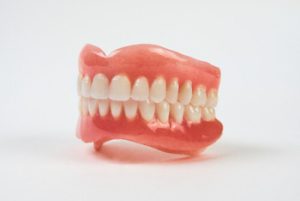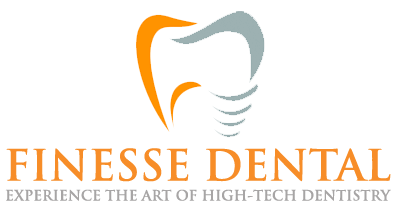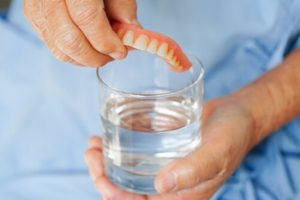If you’ve been considering dentures to replace missing teeth, you’re likely wondering, “How much do dentures cost?” This question is crucial, as dentures are a huge investment in your dental health and overall quality of life. Dentures vary widely in price depending on the type, materials, and other dental services required. In this guide, we’ll break down the types of dentures available in Australia, their cost ranges, and what factors can impact out-of-pocket expenses.
The Basics: What Are Dentures and Why Might You Need Them?
Dentures, often referred to as “false teeth,” are customised, removable dental appliances designed to replace lost or missing teeth. They provide a functional and aesthetic solution for individuals who have experienced significant tooth loss due to factors like tooth decay, gum disease, or dental trauma. While some might need partial dentures to fill specific gaps, others may require full dentures for both the upper and lower dentures. Choosing the right type of false teeth depends on your needs, budget, and the state of your natural teeth. Exploring the Different Types of Dentures
When looking at denture options, you’ll come across various types, each with different cost implications.
Full Denture (Complete Denture)
Full or complete dentures are made to replace an entire set of upper or lower teeth. These full acrylic dentures are often recommended for individuals who have lost all their natural teeth in one or both jaws due to decay or disease.
Partial Denture
Partial dentures are ideal for those who have some natural teeth remaining. They fill the gaps where teeth are missing, helping to maintain the alignment and integrity of surrounding teeth.
How Much Do Dentures Cost in Australia?

- Partial Dentures: Starting at $700 AUD, with the price varying based on materials and the number of teeth being replaced.
- Full Dentures (Upper or Lower): Starting from $1,000 AUD per arch, depending on specifics like material and design.
- Complete Set of Full Dentures: For both upper and lower jaws, the starting cost is around $2,000 AUD for a full set.
Factors That Affect the Total Denture Cost
When considering dentures, it’s essential to understand the range of factors that influence their cost. From the type of dentures to the materials used and even the location of your dental clinic, each element can significantly impact the final price. Knowing these factors can help you make informed choices and select the best option for your needs and budget.
Material Quality
High-quality dentures made from premium materials like chrome or porcelain can elevate the cost due to their enhanced durability and lifelike appearance.
Type of Clinic
Private denture clinics generally have higher prices than public dental clinics. However, they often provide quality dental care, more personalised care and faster service.
Dental Health and Preparation Procedures
If you require additional procedures like tooth extractions, gum treatment, or dental health assessments, these can add to the total cost.
Adjustments and Relining
Most dentures need to be adjusted or relined to maintain comfort and fit, which can also impact overall costs.
Location and Experience of the Dental Clinic
Denture clinics in metropolitan areas may charge more due to higher operational costs, and experienced dentists may also charge a premium.
Does Health Insurance Cover Dentures in Australia?
Private health insurance may cover part of the denture costs, especially if you have extras or comprehensive coverage. However, it’s essential to verify the specifics with your provider, such as whether partial dentures or hybrid designs are included. Keep in mind that waiting periods may apply, and some insurance plans cover only a percentage of the costs or up to a specific limit.
Denture Care and Maintenance: Keeping Your Investment Safe
Maintaining dentures requires regular care, from cleaning with denture adhesive to scheduling denture relines. Quality dentures can last between 5 to 10 years with the proper care, though they may need occasional adjustments to remain comfortable as your gum tissue and jaw shape change over time. For best results, remove dentures overnight to let your gums rest, and clean them thoroughly to avoid bacterial buildup.
Flexible Financing Options for Affordable Dental Care
Exploring options for financing dental treatments can make high-quality care accessible without straining your budget. Here are several payment solutions to consider:
Cash and Card Payments
Most dental clinics accept major debit and credit cards, including MasterCard, Visa, and American Express, enabling you to pay directly in a simple, straightforward way.
Weekly Payment Plans
Some dental practices offer payment plans via TLC that let you spread treatment costs over manageable weekly instalments. Plans often cover treatments up to a certain amount (e.g., $50,000) and may require eligibility verification, providing flexibility to pay for treatments over time.
Private Health Insurance Rebates
Many clinics are partnered with major health funds, enabling patients to claim rebates on the spot through systems like HICAPS. If you’re insured with providers such as Bupa, Medibank, AHM, HCF, and others, this option can significantly lower your out-of-pocket costs by applying your insurance benefits immediately.
Veteran’s Affairs Benefits
Veterans are often eligible for special dental benefits, ensuring they receive quality and affordable care. Check with your clinic to confirm if they welcome Veteran’s Affairs patients and what specific benefits apply.
Interest-Free Payment Plans
Interest-free plans are a common offering for treatments like orthodontics, helping patients manage costs without added interest charges. This arrangement allows you to spread payments over an agreed period, making dental care more affordable and budget-friendly.
Early Access to Superannuation
Certain financing programs enable early access to superannuation to cover dental costs for eligible treatments. These options generally avoid credit checks and can offer faster access to funds compared to other financing routes, especially for medically necessary procedures.
By selecting the financing plan that best suits your needs, you can access necessary dental treatments without the financial strain. Consult with your dental clinic for more information on the best option for your situation.
Alternative Solutions to Dentures
Dentures aren’t the only solution to replace missing teeth. Here are some alternatives:
Dental Implants: Dental implants offer a long-lasting and durable solution but come at a higher cost than dentures, starting at around $3,000 AUD per implant. They provide the advantage of a fixed, resilient option.
- Bridges: Dental bridges serve as another alternative, particularly when multiple teeth in a row need replacement. They start at $1,000 AUD, with prices depending on the materials and complexity involved.
- Implant-Supported Dentures: This option combines implants with removable dentures for enhanced stability, starting at $10,000 AUD for a complete set.
Exploring Dentures Alternatives: Dental Implants – A Long-Term Cost Comparison
When replacing missing teeth, both dentures and dental implants offer viable solutions, yet they differ significantly in terms of initial costs, maintenance, longevity, and overall investment. Choosing between these two options is based on personal preferences, budget, and long-term goals. Below, we’ll take an in-depth look at the long-term costs of traditional dentures, versus dental implants to help you make an informed choice.
Dentures: Lower Initial Costs but Ongoing Expenses
Dentures have long been a favoured choice for replacing missing teeth due to their relatively low upfront cost and accessibility. They come in several types, including full, partial, and implant-supported options, offering flexibility to fit various needs and budgets. While initial costs for conventional dentures are generally lower than dental implants, there are a few additional factors to consider:
Maintenance and Replacement
- Regular Adjustments and Relines: As the jawbone and gum tissue shift over time, dentures often require adjustments or relining to ensure a comfortable, secure fit. These adjustments are necessary for continued comfort but do incur additional costs. On average, denture relining starts at around $200 AUD and may be needed every 1–2 years.
- Replacement Frequency: Dentures typically last about 5–10 years before the necessity to be replaced due to natural wear, changes in the mouth’s shape, or material degradation. Each replacement cycle adds to the overall long-term expense.
Other Associated Costs
- Denture Adhesives: For added stability, many denture wearers use adhesives, with starting costs around $50 AUD per year.
- Cleaning and Care Supplies: Proper maintenance of dentures typically requires specific cleaning solutions and brushes, with starting costs at approximately $50 AUD per year.
Long-Term Cost Outlook
- Over a span of 20–30 years, the cumulative costs for dentures—including maintenance, relines, adhesives, and replacements—can become significant, potentially starting at $6,000 AUD.
Dental Implants: Higher Upfront Cost but Lower Long-Term Maintenance
Dental implants offer a permanent solution for missing teeth by anchoring artificial teeth directly to the jawbone. While implants come with a higher initial price tag, they offer durability, stability, and a natural look and feel that can endure a lifetime with proper care. Here’s a breakdown of the costs associated with dental implants:
Initial Cost
- Single Implant: The starting cost for a single dental implant is approximately $3,000 AUD, with the final price depending on factors like location, dentist expertise, and any additional needs such as bone grafting.
- Full Mouth Implant-Supported Dentures: For a full arch, implant-supported dentures start around $20,000 AUD per arch. For both upper and lower arches, the combined starting cost is about $40,000 AUD.
Maintenance and Longevity
- Minimal Maintenance: Unlike dentures, implants do not require adhesives, special cleaning products, or regular adjustments. Routine dental hygiene habits, such as brushing and flossing, suffice to keep them in good condition.
- Lifetime Solution: Implants are designed to be a lifetime solution, with most implant-supported crowns lasting 15–25 years before requiring a replacement. The titanium implant posts themselves, once integrated into the bone, can last a lifetime in many cases.
Replacement Frequency
- The implant posts are generally permanent, but the crowns (the visible tooth portion) may need to be replaced every 15–25 years.
Other Associated Costs
- Initial Consultation and Surgery Costs: Dental implants may require additional procedures, such as bone grafting or sinus lifts, with starting costs of around $500 AUD, depending on the complexity of the procedure.
- Follow-Up Visits: Periodic follow-ups are necessary to monitor implant health, but these are typically fewer and less expensive compared to regular denture adjustments.
How Often Should Dentures Be Replaced?
Dentures aren’t permanent fixtures; they generally require replacement every 5 to 10 years. This timeline depends on several factors, including wear and tear, changes in your mouth, and the type of dentures you have. Let’s dive into why dentures need replacement and how to know when it’s time for a new set.
Natural Changes in the Mouth
- Over time, the shape of your jaw and gums changes due to natural bone loss, a process that occurs after tooth loss. This can cause dentures to become loose and less comfortable, leading to the need for a replacement or adjustment.
Signs It’s Time for New Dentures
- Fit Issues: If your dentures start feeling loose or cause sore spots, this may indicate it’s time for a replacement.
- Appearance: Dentures may become discoloured or worn over time, affecting their aesthetic appeal and confidence.
- Difficulty Chewing or Speaking: A decline in function, such as challenges with chewing or speaking clearly, often signals the need for new dentures.
Maintenance and Relining
- Dentures require regular adjustments, called relining, to maintain fit. However, if adjustments don’t restore comfort and functionality, replacement might be the next step.
Replacing dentures on a regular schedule helps ensure a comfortable fit, efficient functionality, and an appealing look, allowing you to enjoy the benefits of a secure, natural-looking smile.
Lifestyle Adjustments with Dentures: What You Need to Know
Transitioning to dentures often requires a few lifestyle adjustments, as they differ from natural teeth in function and care. Here are some common changes to anticipate and tips for making the transition smoother.
Eating with Dentures
- At first, chewing certain foods might be difficult. Beginning with softer foods and slowly introducing more textured ones can make the transition easier. Cut food into smaller bites, and avoid sticky or overly hard foods that might dislodge or damage your dentures.
Speaking Comfortably
- Dentures can sometimes affect speech, especially when first adjusting. Practice speaking by reading aloud or repeating difficult sounds to help your mouth get used to the new appliance. With time, speech usually becomes natural.
Oral Hygiene Routine
- Dentures require a dedicated cleaning routine separate from regular brushing. Daily cleaning using a soft brush and denture cleaner and soaking overnight helps maintain hygiene and extend the life of your dentures. It’s also important to maintain gum health by gently brushing your gums and tongue.
Using Denture Adhesives
- Many people use denture adhesives for added security, particularly with lower dentures. Denture adhesives can improve stability, though they should be used sparingly. If you find yourself relying heavily on adhesives, it may indicate your dentures need adjustment.
Overnight Removal
- Dentures should typically be removed overnight to give your gums a break and to prevent bacterial buildup. This routine helps reduce the risk of gum irritation and keeps your dentures in good shape.
Regular Dental Checkups
- Even with full dentures, regular checkups with your dentist are essential. Dentists can assess the fit and condition of your dentures, monitor your oral health, and perform any necessary adjustments or relining.
Adapting to dentures takes patience, but with these adjustments, you can enjoy a comfortable, functional, and beautiful smile. For many, dentures provide an invaluable improvement to daily life and are well worth the transition.
Is Investing in Dentures Worth It?
For many, dentures provide a significant improvement in quality of life, making it easier to speak, eat, and smile confidently. Quality dentures fitted by a skilled dentist are often worth the cost, particularly if your overall dental health and appearance are priorities. While the initial investment may seem steep, the boost in self-confidence and daily comfort is invaluable.
Preparing for Your First Denture Consultation

Final Thoughts: Dentures as an Investment in Dental Health
While denture prices can vary, the cost of high-quality dentures should be viewed as an investment in your dental health, appearance, and confidence. Whether you’re considering full dentures, partial dentures, or implant-supported solutions, there’s a denture option to fit most budgets and needs.
For a personalised quote or to discuss your options, contact Finesse Dental at (02) 8806 0790 to help you navigate this important dental health decision. Remember, replacing missing teeth not only restores function but can also enhance your quality of life and overall well-being.
Note: Any surgical or invasive procedure carries risks. Before proceeding, you should seek a second opinion from an appropriately qualified health practitioner.
References
- Cleveland Clinic. (n.d.). Dental implants. Retrieved from https://my.clevelandclinic.org/health/treatments/10903-dental-implants
- WebMD. (n.d.). Dental health and dentures. Retrieved from https://www.webmd.com/oral-health/dental-health-dentures
- Healthline. (n.d.). Partial denture: Types, benefits, uses. Retrieved from https://www.healthline.com/health/dental-and-oral-health/partial-denture
- HICAPS. (n.d.). HICAPS health fund partners. Retrieved from https://www.hicaps.com.au/
- U.S. Food and Drug Administration. (n.d.). Denture adhesives. Retrieved from https://www.fda.gov/medical-devices/dental-devices/denture-adhesives
- FDI World Dental Federation. (n.d.). How to practice good oral hygiene. Retrieved from https://www.fdiworlddental.org/how-practice-good-oral-hygiene


 Dental Implants: Dental implants offer a
Dental Implants: Dental implants offer a